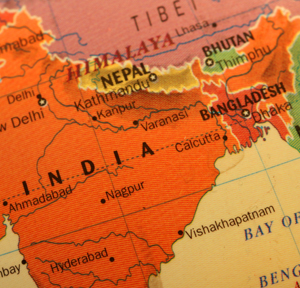WM Market Reports
India Opens Its Arms - Up To A Point - For Foreign-Owned Banks, Draws Cautious Welcome

A move by India's central bank to open up the market to foreign-owned banks in a limited way may create opportunities for global players, including wealth firms.
In a move seen as a step to open up a traditionally protectionist market, India’s central bank has said it will put foreign financial institutions on a level with local lenders if they adopt a wholly-owned subsidiary structure. However, certain restrictions on foreign banks will remain.
The Reserve Bank of India issued rules which, according to a report by Reuters, are broadly in line with what industry-watchers expected. The move to liberalise the banking system dates back to 2004, the central bank said in a statement on its website.
“The policy is guided by the two cardinal principles of (i) reciprocity and (ii) single mode of presence. As a locally incorporated bank, the WOSs [wholly owned subsidiaries] will be given near national treatment which will enable them to open branches anywhere in the country at par with Indian banks (except in certain sensitive areas where the Reserve Bank’s prior approval would be required),” the RBI said.
“They [banks] would also be able to participate fully in the development of the Indian financial sector. The policy incentivises the existing foreign bank branches which operate within the framework of India’s commitment to the World Trade organisation to convert into WOS due to the attractiveness of near-national treatment,” it continued.
Size restriction
The statement said the RBI will cap expansion of foreign banks if their share of the market exceeds a “critical size”. “To prevent domination by foreign banks, restrictions would be placed on further entry of new WOSs of foreign banks/ capital infusion, when the capital and reserves of the WOSs and foreign bank branches in India exceed 20 per cent of the capital and reserves of the banking system,” the statement said.
UK-headquartered Duncan Lawrie Private Bank, which has a presence in the country, said the RBI’s move was a step in the right direction but also issued a cautionary note.
“There is a certain duality to India at the moment. On the one hand we can see some great opportunities in the country, and lowering the barriers to entry for foreign financial institutions is a logical step for the Indian central bank. On the other India remains tied by an infrastructure that is in dire need of investment and a languishing currency which perpetuates the stagnation of the economy,” Matthew Parden, managing director at the private bank, said in an email.
“The new governor of the central bank, Raghuram Rajan, has a lot of respect and support and is viewed in a very positive light across the country. This mandate has allowed him to start to initiate change in order to deal with some of the inherent problems in the Indian economy, most notably inflation,” he continued. “Foreign banks have long wanted to boost their profile in India,” he said.
“Encouraging British banks to come to India is a stride in the right direction for the country, but the UK’s economic ties with India are still weak. Rupee depreciation, visa issues and economic instability remain fundamental barriers in the short term. Correct these and the country is very capable of bringing in the banks it desires,” he added.
The fine print
Among details of the rules, the RBI said the wholly owned subsidiary rule applies to banks with complex structures; banks which do not provide adequate disclosure in their home jurisdiction; banks which are not widely held and banks from jurisdictions having legislation giving a preferential claim to depositors of home country in a winding up proceedings. Foreign banks in whose case those conditions do not apply can opt for a branch or WOS form of presence.
Foreign banks which started doing business in India before August 2010 have the option to continue work through the branch rather than WOS mode. “However, they will be incentivised to convert into WOS because of the attractiveness of the near national treatment afforded to WOS,” it said.
Non-India banks operating in the country include UK-listed firms such as HSBC and Standard Chartered; they both operate large networks and are run as branches, not subsidiaries.
According to the RBI statement, a bank operating as a wholly owned subsidiary has a “priority lending requirement” of 40 per cent; the RBI said it will have an “adequate transition” period for existing foreign banks switching to the WOS structure.
State banks in India account for about two-thirds of the sector’s assets (as of end-March 2012), according to Reuters; foreign banks accounted for a mere 4.3 per cent of deposits, suggesting that there is considerable upside potential even with continued restrictions in place.
